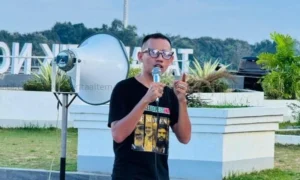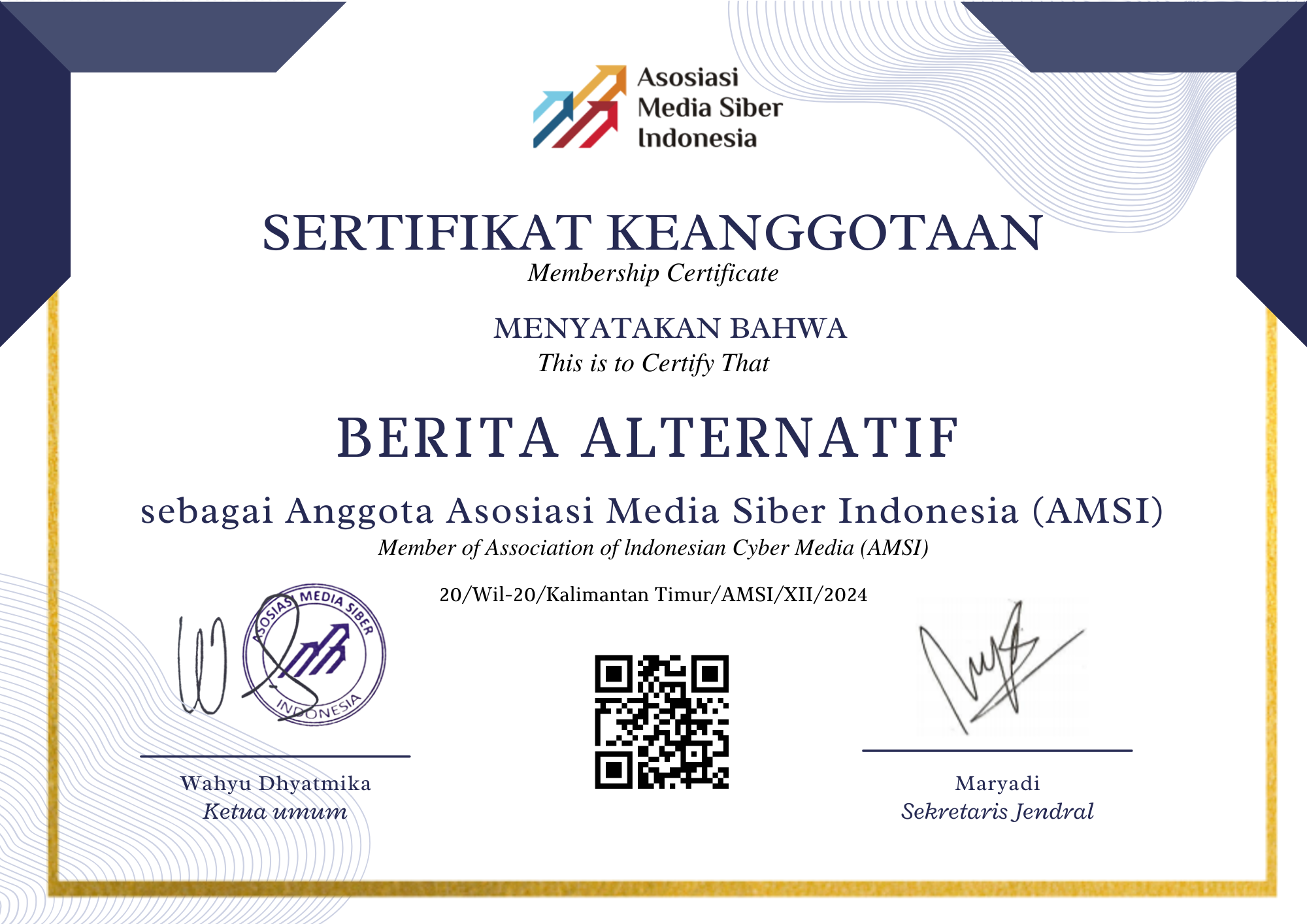Oleh: Muhammad Dudi Hari Saputra*
Just prior to midnight on August 17, 2019, over twenty tear gas canisters blasted through the windows of a college dormitory in Surabaya, Indonesia. Military personnel clad in black riotgear forced through the barricaded doors as frightened students fell to the ground. As the clock struck twelve and the calendar flipped to Indonesia’s Independence Day, forty-three Papuan students were dragged from the premises and escorted through an angry mob that had gathered outside. Student members of the rightist groups Islam De- fenders Front (FPI) & Pemuda Pancasila (PP) had surrounded the building and began chanting racial slurs, threatening violence, and singing the Indonesian national anthem after a story about an Indonesian flag being found in a gutter near the dorms went viral on social media.
Peaceful protests calling for Papuan independence the preceding day had been met with violence. Across Java, Indonesia’s most populous island and center of political power, civil militias attacked Papuan protestors as police stood idly by. Meanwhile, politicians such as Malang’s deputy mayor.
Sofan Edi Jarwoko called for the forced expulsion of all Papuan students from the island. Papua had joined the union in 1969 following a corrupt vote which saw only 1,063 ballots cast, roughly 0.1% of the population. Since then, the continued militarization of the region to protect multinational corporations’ exploitation of natural resources has paralleled a critical lack of support from Jakarta for infrastructure development and human resources, resulting in a low-level insurgency which has resulted in at least half a million Papuan deaths, 40,000 internal refugees, and periodic protests from Papuan citizens living in other regions of the nation.
Rebellion against the government on Java due to inequalities between the center and the periphery has been a hallmark of Indonesian history. In 1957, less than a decade after the culmination of the war for independence against the Nether- lands, the Permesta (Perjuangan Semesta, or Universal Strug- gle) rebellion embroiled Sulawesi. The following year, the PRRI (Pemerintah Revolusioner Republik Indonesia, or Revolutionary Government of the Republic of Indonesia) rebellion lunged the island of Sumatra into revolt.4 In 1976, a near thirty-year insurgency began in Aceh which only came to an end due a tsunami that devastated the area in 2004. And in one of the most egregious human rights violations in modern history, the failed attempt to colonize Timor Leste resulted in the death of nearly 20% of the region’s population.
The persistence of political, economic, and social inequalities between Java and the outer islands has continued to beset ethnic minority communities across the nation. Indonesia is now the sixth country of greatest wealth inequality in the world, with much of that wealth concentrated on Java. Since the introduction of decentralization reforms in 1999, district governments have been responsible for the financing of public education. While the Indonesian government has touted a three-fold increase in education spending in just over a decade, that spending has been largely linked to the concentration of wealth on Java, where each of the nation’s top 10 ranked universities reside. As a result, students in Jakarta consistently score over ten percentage points higher on the National Exams than their counterparts on islands such as Kalimantan, Sulawesi, and Papua.
As a lecturer at Kutai Kartanegara University in East Kaliman tan, Muhammad Dudi Hari Saputra has witnessed these inequalities firsthand and has strived to champion social justice through public engagement. In the following article, written for the popular Indonesian social commentary website Geo- times in 2017, Saputra puts the inequalities in Indonesia’s education system on blast by targeting the hierarchical nature of the country’s intellectual culture. The article opens with a well-known quote from the father of Indonesian literature, Pramoedya Ananta Toer. The Nobel Prize nominated author’s words, taken from the novel Bumi Manusia (This Earth of Mankind), which was adapted in 2019 into a top 5 Indonesian box office hit, implores intellectual introspection as the first step in the path towards social justice.
Anchored by these famous words, Saputra critically examines the fallacy of thought that has created a stifling hierarchy of educational gradations in Indonesia. The article pauses periodically for quotes from famous figures in Indonesia, such as respected public intellectual Bambang Sugiharto and re- ligious leader Ali ibn Abi Talib, effectively insulating the author’s blistering critiques from scrutiny and rendering the message more palatable to a public audience. Saputra then thoughtfully returns to the opening quote to connect the in- equality in the public’s mindset to the physical disparities in educational resources across the country.
The article concludes with a lingering query for readers to ponder What is the reason that Papuans are not entitled to the same quality of education as students in the metropolitan centers on Java? However, by singling out Papuans, the author inquiries about far more than education, linking his critical analysis of Indonesian intellectual hierarchies to the injustices perpetrated upon Papua by the nation’s center of power. If political leaders and students on college campuses across Java can’t first learn to treat Indonesian citizens in re- gions like Papua justly in their thoughts, then how can their deeds ever break down the barriers of inequality and injustice that plague the nation?
“An educated person must first of all learn to act justly in their thoughts, then later in their deeds.” (Pramoedya Ananta Toer, This Earth of Mankind, 1975)
This phrase always rings in my mind, inspiring me. Yet at the same time, the phrase tugs at my heartstrings because intellectual injustice is most often perpetrated by those who consider themselves educated.
The phenomenon of fallacy (an error in thought) is that I am a professor therefore I am better than others who hold a PhD, or that since I have a PhD I am better than one with a Mas- ter’s degree, or that since I have a Master’s degree I am bet- ter than one with a Bachelor’s degree, or that since I have a Bachelor’s degree I am better than those who do not have any degree.
Intellectual gradations are interpreted as a hierarchy, which stifles. This is not even to mention the phenomenon of think- ing that “since I graduated from here, I am better than graduates from there.”
Somehow the measure of one’s personal achievements be- comes a criterion for truth. Like Bambang Sugiharto’s sarcas tic remarks: You may be right, but because you are nobody, you are considered inconsequential. Meanwhile, if a fallacious statement comes from a professor’s mouth, it is “considered” true and logical.
It is a flashback to what Ali ibn Abi Talib once said: Pay atten- tion to what is said, not who says it.
This simple sentence has a strong epistemological basis in objectivity–that the measure of truth is not based on who makes a statement, but the statement’s rationality and its correlation with facts. Namely, whether the statement is able to explain something in accordance with reality.
In my personal intellectual journey, it is not infrequent that I more often find people who have a depth of knowledge and broad insight because they have learned through informal, autodidactic processes. Their lack of formal degree or title actually makes them humbler and provides them with the capacity to more freely explore the reality of what actually happens.
In other words, there are too many theories. In fact, to the extent that theories become a barrier to the reality of what actually happens. Metaphorically, science is used as a hijab or barrier of sorts.
I recall asking Ferizal Ramli about the quality of education in Germany–which university should one go to? He replied that all universities in Germany were of equal quality.
So, what about Indonesia? Whether we realize it or not, the phenomenon of intellectual egotism still exists. People [who graduate from prestigious universities] consider themselves better than others who may have graduated from a less prestigious university.
The phenomenon goes beyond one’s mindset or image. A disparity in the quality of universities in Indonesia actually exists, and it contributes to the uneven quality of human re- sources throughout our beloved archipelago.
How could there possibly be equitable development and education across the country if the most gifted educators only focus on their alma maters or prestigious universities in big cities which have the best facilities?
So, how can we act justly in our thoughts, and especially our deeds, if we continue to maintain systemic mechanisms of inequality which force intellectuals to gather in one place, without any conscious effort to spread the benefits of education to every corner of the country?
What is the reason that Papuans are not entitled to the same quality of education as students in Surabaya, Bandung, Yogyakarta, or Jakarta? (*Muhammad Dudi Hari Saputra is a public scholar and lecturer at Kutai Kartanegara University in Tenggarong, East Kalimantan)























